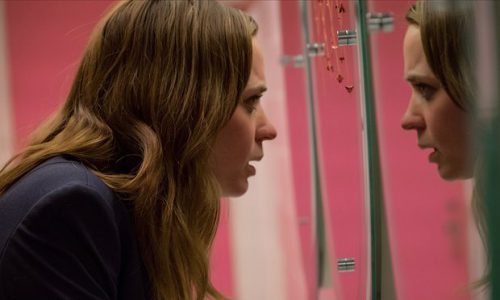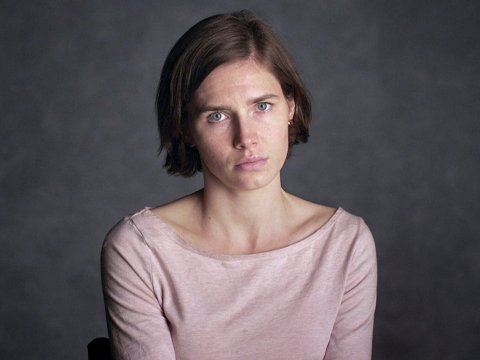
 A couple of weeks ago my husband, back from an extended work trip, gave me the greatest of gifts: an overnight stay in a local hotel. No, not with him. This was the gift of solitude for nearly twenty-four hours, a joy rarely experienced by mothers of young children and highly coveted by the same, particularly the introverted sort such as myself. Granted, the gift was born out of a demand on my part after a sleepless night and an overflowing toilet, but let’s avoid looking at this horse directly in the mouth, shall we?
A couple of weeks ago my husband, back from an extended work trip, gave me the greatest of gifts: an overnight stay in a local hotel. No, not with him. This was the gift of solitude for nearly twenty-four hours, a joy rarely experienced by mothers of young children and highly coveted by the same, particularly the introverted sort such as myself. Granted, the gift was born out of a demand on my part after a sleepless night and an overflowing toilet, but let’s avoid looking at this horse directly in the mouth, shall we?
When the time arrived, my plan was set: I would head to our neighborhood movie theater, bag of snacks in hand, and proceed to view an ENTIRE MOVIE BY MYSELF. Then I would check in at the hotel for an evening filled with room-service dinner, boxed wine from Target, TV, reading, and glorious sleep. The next morning I’d have to leave early to take our older son to his swim lesson because #parenting, but I figured my solitude tank would be good and sated by then.
I hit the first psychic snag within two minutes of squealing out of the driveway. Had I laid out PJs for the kids? Check. Had I laid out their towels for bathtime? Check check. Had I laid out their outfits for the next day? Against my better judgment but in line with my control-freak status…check check check. The anxiety seemed incongruous. What could possibly be wrong? As I pulled into the theater’s parking lot I realized: I was afraid to be by myself.
This development left me wondering if I should head back home, or text my counselor for an emergency session. I’ve lived alone at multiple points during my adult life; I’ve seen countless movies solo and loved every minute; I leave parties early so I can hang out in my bed; I grew up preferring books to people. But lately, I’ve noticed a growing fear of many things I used to enjoy: horror movies, bungee jumping, quiet nights by myself. Before my husband’s trip, I had voiced a particular fear to some good friends: I’m afraid of being alone with my kids for that long.
The truth is, the triplet mirrors of marriage, parenthood, and grace have reflected back true versions of myself over the past few years that are often shocking and disappointing. Back in the old days (my twenties), I didn’t know myself well enough to feel concern over…well, being alone with me. I’m not sure I particularly liked myself then, but I was great at masking any insecurities with various techniques (alcohol, guys, New York City). No such luck hiding from the truth in a suburban domestic home, surrounded by a family who sees me all too well and a community of friends, many from church, who do as well. I’ve also managed to spill my secrets all over this website…so the jig, they would say, is up.
I wasn’t without help in reaching this epiphany–two hours of sitting through The Girl on the Train also got me there. “I’m afraid of myself,” Emily Blunt’s Rachel says at one point, and I’d be lying if I claimed I couldn’t relate. Entire sections of my life have been at least partially devoted to misadventures: I call them college, grad school, and (again) New York City. Though not without their high points, those times also bring to mind plenty of mistakes, the moments that would belong in a dark thriller or a pre-conversion testimony, except there were no cameras and this was post-conversion. My life hasn’t been a tidy sequence of “did bad things then repented and now I walk with Jesus YAY!”; no, the “bad things” remain peppered throughout the years, and some days I think–awareness of and gratitude for grace notwithstanding–that were it not for my domestic demographic, I’d still be a hot mess along with Rachel, raccoon eyes and regret replacing church on too many Sunday mornings. It turns out I’m still sinful. Who knew?!
Well, God. And me, now. Hence that double-edged sword of self-awareness, with its gift of vigilance along with its infliction of fear. I made it through the movie and to the hotel, and though the room was somehow too…quiet, I did appreciate the stillness for a night. But that moment of panic in the car has remained with me, and I’m not done interpreting the fear within it–because along with the self-awareness has come a general awareness, from which grace annoyingly removes my former excuses to judge even as it hones an ability to see things–my and others’ fear, especially–more clearly. Take this whole political climate, and the attending national conversations. I am talking, of course, about what I read on social media, that veritable gold mine of insecurities parading as opinion and achievement. Unchangeable viewpoints and unbridled anger are the trophy pieces of status updates and comments sections.
Recently I saw a couple of especially troubling trends online. The first was a contrived narrative attempting to reconstruct one candidate’s identity in line with the story of an Old Testament character–womanizing and passionate anger being labeled as either unfortunate minor flaws or tools God worked with to help “lead Israel back to God.” Overreach much? I seethed from behind the same computer I, not long ago, used to fire off my own extreme ideas and one-sided considerations. The second was a comment on a friend’s Facebook post in regard to the same candidate: “Don’t lump me in with THAT guy–I’d NEVER be compared to him.” The first trend represented a false equivalency born of a narrative that must exist for some to defend their opinion; the fact is, the narrative is actually much worse. Which leads to the second trend, this need to absolve ourselves from any association with the foibles of a particular candidate (or coworker, or competitor). In both cases, the news about ourselves is being expended for a focus on someone else; and who can help but trend in that direction when the true news about us is so dire: that even if it were just me and my not-so-bad sin, Jesus would have had to die?
All sin is damning. The true equivalence here isn’t with a candidate and a Biblical character, or with us and the “not them”s of the world; the true equivalence is between us and every disreputable person, every “other” out there, every abhorrent character in existence. Until I see that, there will always be an “us vs them” form of superiority lodged in my heart. Or, to quote Bob Dylan, “It’s not hard for me to identify with anybody who’s on the wrong side. We’re all on the wrong side.”
 This is a painful, awful truth for which alcohol and men and New York are not the cures (though often the indicators). This means that my sin requires the same divine mercy as that of either candidate, as that of the guy I dated in my twenties who didn’t listen when I said “no,” as that of any person in a locker room or jail or medical office or anywhere else who minimizes the dignity of humans made in God’s image. This is what Amanda Knox, accused then acquitted killer but no doubt sinner, said at the end of her Netflix documentary:
This is a painful, awful truth for which alcohol and men and New York are not the cures (though often the indicators). This means that my sin requires the same divine mercy as that of either candidate, as that of the guy I dated in my twenties who didn’t listen when I said “no,” as that of any person in a locker room or jail or medical office or anywhere else who minimizes the dignity of humans made in God’s image. This is what Amanda Knox, accused then acquitted killer but no doubt sinner, said at the end of her Netflix documentary:
People want the reassurance that they know who the bad people are and it’s not them…we’re all afraid.
And you thought being identified with the gorilla mom was offensive.
To put it perhaps more gently: if my identity hinges on my being better than Trump or Hillary or the guy from my twenties? I’m undoubtedly going to run into trouble that leads to hopelessness.
When I was pregnant with our older son, I was on my way home from work one evening when I ran into a traffic jam. My vision was blocked (LIFE THEME) and I grew more outraged over this seemingly invisible obstacle to arrival at home. After a couple of minutes, I saw the source of the holdup: a family of geese was waddling across the road, and the backup of cars was due to the first two in each lane stopping for the animals’ safety. “Oh shit,” I remember thinking, hand on my belly, where along with the baby an awareness was growing: “I’m going to have to become a different person.”
Well, I did. And I didn’t. Sometimes I’m the one who protects my kids, and in my worst moments I pray they don’t need protection from me. “I’m not that girl anymore,” Rachel narrates at the end of The Girl on the Train, and I want to scream at her over a box of wine that the news is so much more dire than that. But that it’s also better, for I remember the grace that pulled me, still pulls me, out of my own mire, that will not stop saving me no matter how I offend it. The grace gentle enough to bring about a stop in traffic for geese and remind us that maybe, in this real narrative, we can all be gentler with each other…and ourselves.

COMMENTS
Leave a Reply












